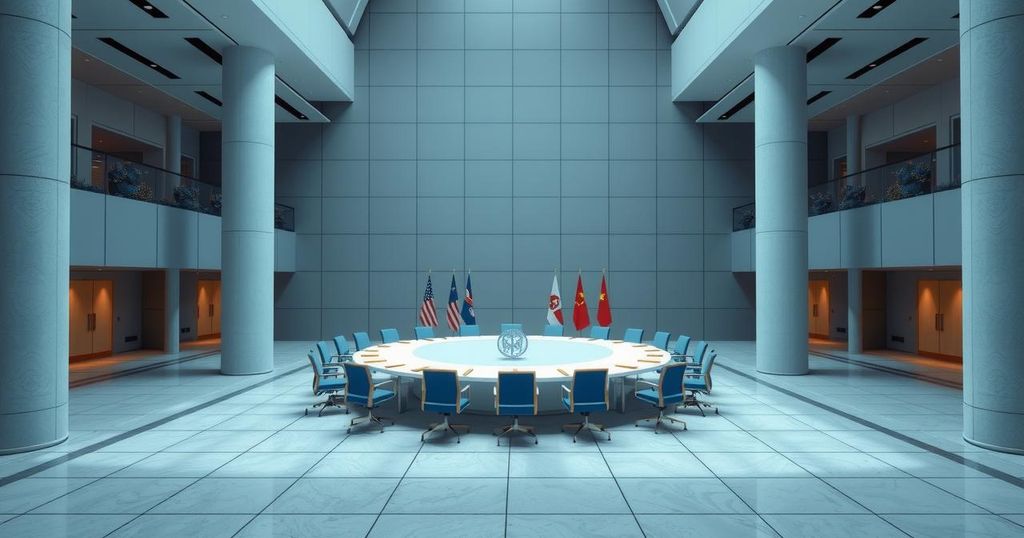The Arab League summit in Cairo showcased unity among Arab leaders on Gaza’s reconstruction, featuring new Syrian interim President Ahmad Al Shara and Lebanese President Joseph Aoun. Their participation signifies a departure from Tehran-aligned policies, reflecting a strategic shift towards strengthening relations with neighboring Arab nations amidst reduced Iranian influence in the region.
The recent Arab League summit in Cairo concluded with a collective agreement on the reconstruction of Gaza, endorsing Egypt’s proposed plan worth $53 billion while dismissing any suggestions for Palestinian displacement. This united front is a direct response to former US President Donald Trump’s controversial proposals regarding Gaza.
Notable figures attending the summit included Syrian interim President Ahmad Al Shara and Lebanese President Joseph Aoun, both of whom conveyed priorities distinct from their predecessors who were aligned with Tehran. Their presence signifies a burgeoning reconnection with other Arab nations, with Saudi Arabia being their initial foreign destination post-elections.
Syria had been excluded from the Arab League under Bashar Al Assad’s regime due to catastrophic civil conflict stemming from the 2011 protests. However, following a regime change led by rebel factions, a new government has emerged in Damascus, leading to Syria’s reintegration into the League in 2023. Mr. Al Shara emphasized Syria’s rightful return saying, “Syria is now in its rightful place – among its brotherly nations and within the Arab fold.”
The regional instability post-Al Assad’s ousting has significantly impacted Iran’s position, disrupting its influence in Lebanon through Hezbollah, and hampering its ability to confront Israel. Hezbollah, weakened after its recent conflicts, has seen new Lebanese leadership more committed to forging alliances with the US and surrounding Arab states.
During the summit, President Aoun stressed Lebanon’s desire for independence from foreign conflicts, stating that it has learned from its sufferings not to be used as a pawn in external wars. He underscored the importance of a unified Arab strength in supporting Palestine, asserting that conflict affects all Arab nations equally.
In response to escalating tensions, particularly following October 2023 skirmishes between Hezbollah and Israel, the Lebanese president reiterated Lebanon’s commitment to reclaim its occupied lands. As Israel maintains a military presence in southern Lebanon, Mr. Aoun asserted that the country will not relent in its struggle for sovereignty.
Mr. Al Shara echoed sentiments for the need to advocate for Syria’s territorial integrity, calling for international pressure on Israel to withdraw from southern Syria, reflecting the new leadership’s focus on diplomatic strategies rather than military confrontation. Regional experts highlight the newfound importance placed on Arab unity in light of diminishing Iranian influence, allowing Arab nations to redefine their strategic roles in regional security matters more autonomously than before.
The Arab League summit highlighted a pivotal realignment in the region, emphasizing a collective approach to address key issues such as Gaza’s reconstruction and the strengthening of Arab ties amid global political shifts. With new leaders from Syria and Lebanon, there is a clear intent to engage more actively within the Arab framework, reducing reliance on external powers. This reflects a broader desire for stability and enhanced diplomatic relations while addressing shared concerns like territorial conflicts and foreign interventions.
Original Source: www.thenationalnews.com




